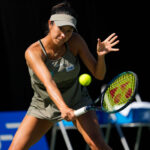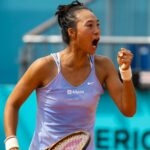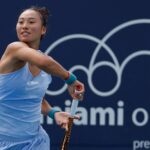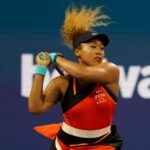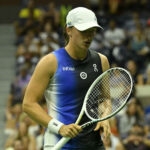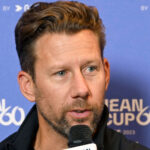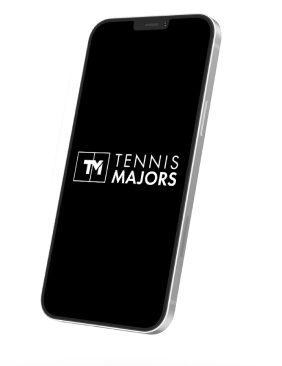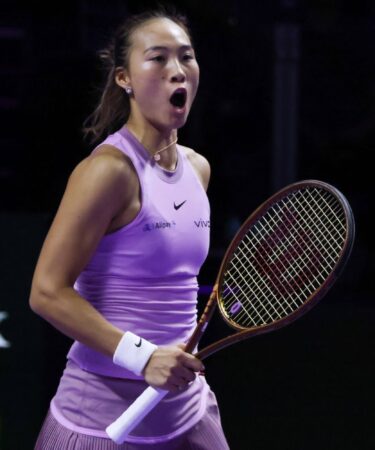Coach Wim Fissette about Qinwen Zheng: “Incredible athlete and worker, whose game needs to get cleaned up”
Wim Fissette has all the coaching experience in the world, and he can already see that his new player Qinwen Zheng has what it takes to be among the very best. She will face Aryna Sabalenka in the quarter-finals.
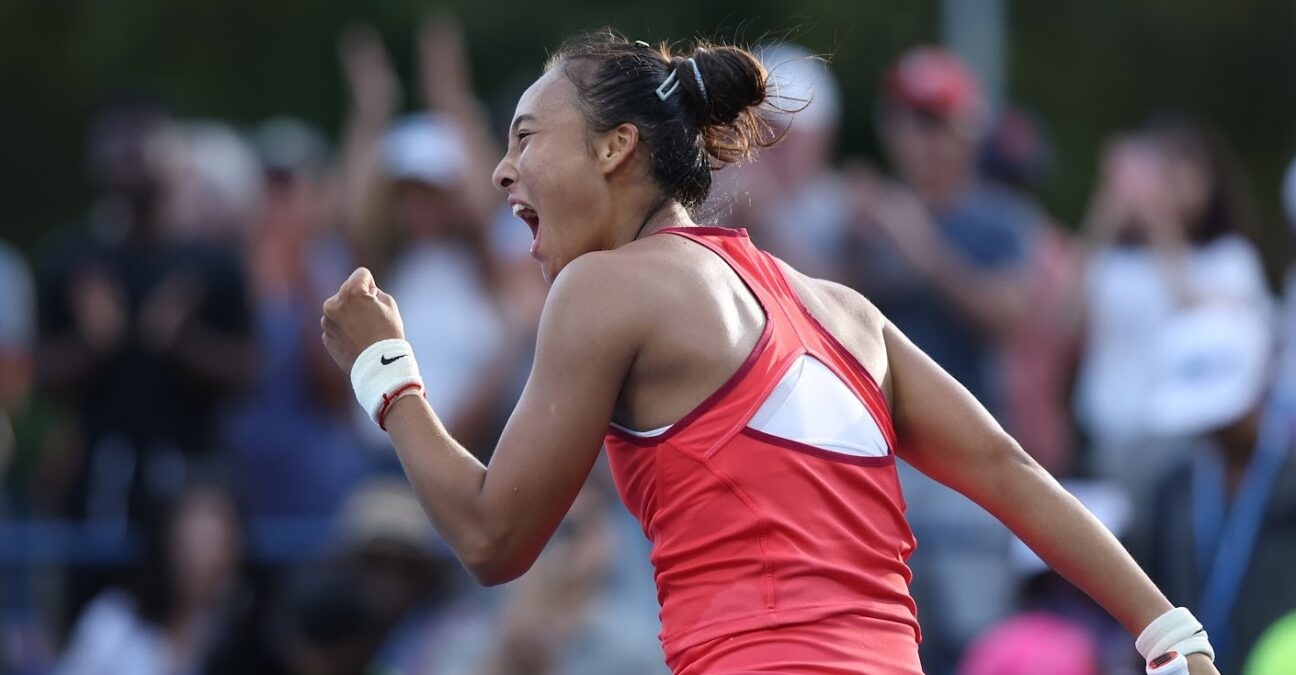 (Antoine Couvercelle / Panoramic)
(Antoine Couvercelle / Panoramic)
Wim Fissette has worked with many Grand Slam champions, including Kim Clijsters, Victoria Azarenka, Angelique Kerber, Simona Halep, and Naomi Osaka. Currently, the Belgian is coaching rising Chinese star Qinwen Zheng, word No. 23 and still in the draw at the US Open (she has a quarter-final against Aryna Sabalenka on Wednesday). The pair commenced their work before the grass season and the relationship is off to a good start.
Fissette talked to Tennis Majors about the challenge of starting with a new player in the middle of the season, how he sees Zheng’s game now and in the future, what the team plans to do for the off-season, and the current state of the WTA Tour.
It must be challenging to start working with a player in the middle of the season because you probably don’t want to change too much too soon …
It has been difficult in that way, like you said. We started after the French Open and four days before her first grass court tournament, which was obviously not an ideal moment. You need time to get to know each other. Even if you have analysis from watching her play or looking at analytics, you have to get to know her, to really understand the player, and to understand better what’s really necessary to take the next step forward.
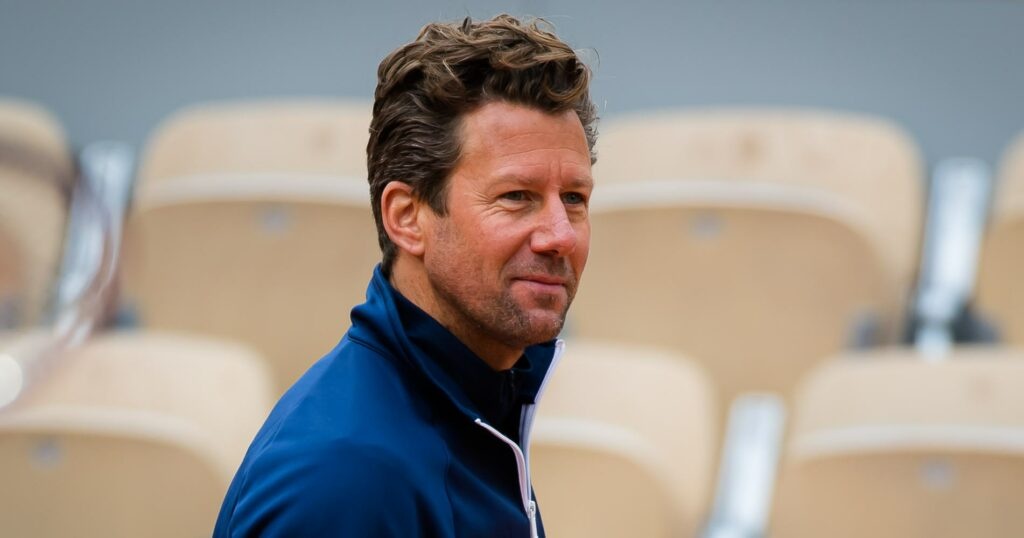
What has been your philosophy in the early stages of your relationship?
Obviously, I wanted to take time and I didn’t feel pressure to perform immediately, you cannot expect that. It was definitely good to watch, observe, and analyze the first weeks on the grass, which is the more difficult surface at this moment in her career. She hasn’t played that many matches yet on grass or hasn’t won many matches on grass, so it’s definitely challenging.
Then seeing the transfer to clay courts, where she is most comfortable. So we had one training week so far, which was at the Nadal Academy after Wimbledon. She decided she wanted to get a little bit more confident. After a tough grass court season where she didn’t win a match, so we decided to go there for a week of training and then added a 250 event at Palermo.
Grass court was difficult for her to understand in order to really make good strategic choices on the surface. It was the opposite on clay: everything came together really well and she made really good choices. Tactically, she was very strong. It’s where you see her at her best, on clay: the heaviness of her forehand, her movement, her quickness on the court – everything kind of comes together on the clay.
We decided to add one tournament so it took away some practice time on hard court. We only had a short preparation on the hard court which was also not ideal, but that’s how it goes in tennis. Nothing is ideal, you adapt to what’s in front of you.
You have to make a few choices. You cannot work on like ten things at a time. Based on the analysis of the first month you try to make little changes but obviously for bigger changes you need preseason.
What excites you most about Qinwen’s game?
First of all, she’s definitely a super athlete. She’s strong and super fast. It’s really impressive how fast she is on the court. Second, her work ethic is unbelievable. It’s really nice: two hours of tennis per day, and also two gym sessions – it’s a normal day for her. It’s really impressive. She does everything with a big smile because it is really her desire, and her ambition – she wants to do everything it takes to achieve the best.
“Her game needs to get cleaned up a little bit”
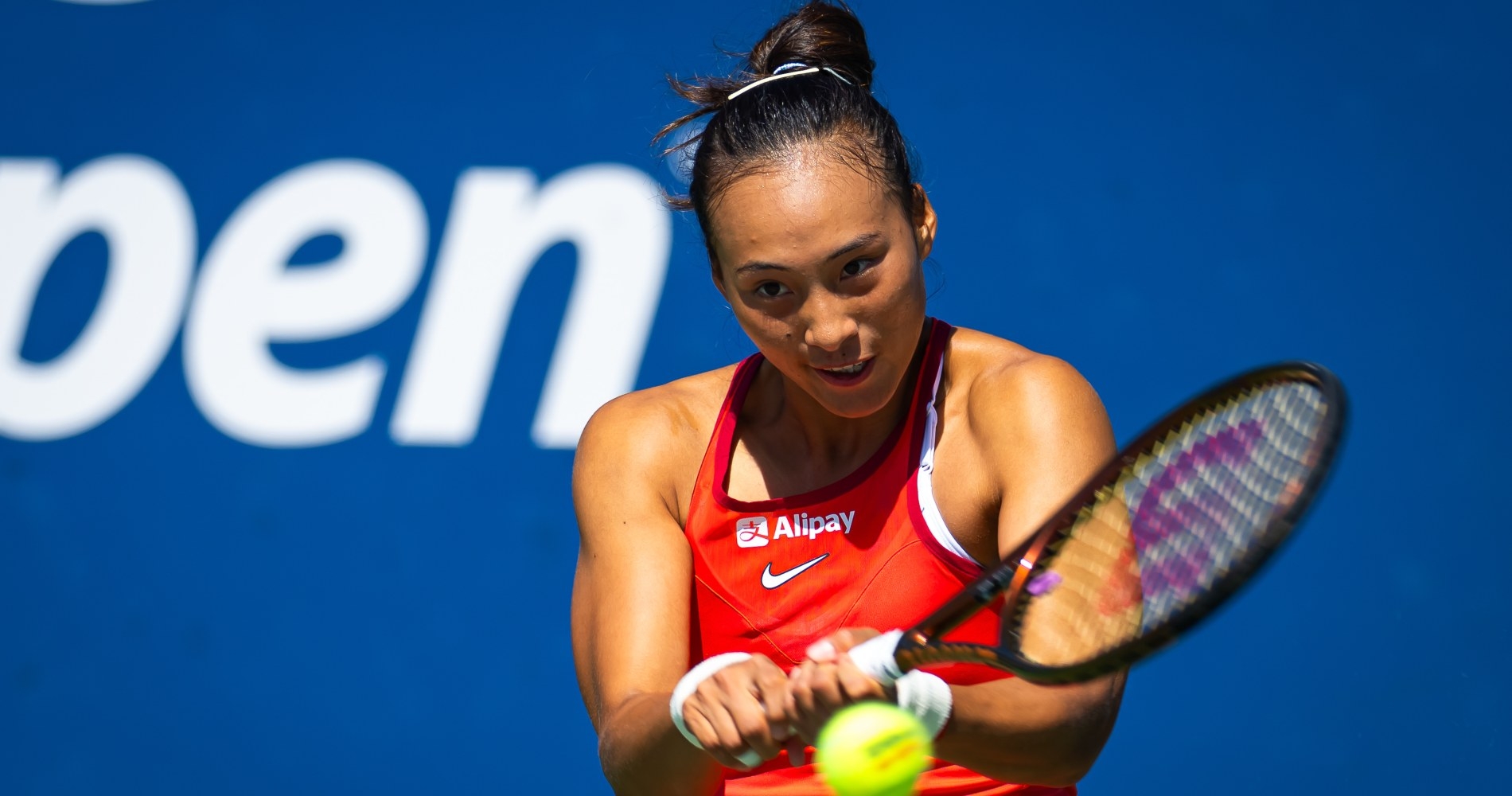
What makes you think she can be a top player?
First of all, she desires to be the best, she’s willing to do everything it takes. Athleticism is a very important one. She’s a very explosive player with a big serve and a really big forehand. Also, the backhand is really strong. I think from her strokes and athleticism there’s a lot there, but obviously she needs to grow as a player, make better choices, I’d say on the hard court, and improve tactically. Her game needs to get cleaned up a little bit. We need to get rid of some errors and make it just a little bit clearer.
Clay is her best surface? Where does she stand on hard courts?
I do think clay court is her best and the heaviness of her forehand is really impressive. I tried to play against her and it was really tough. I do think she needs to use that weapon a little bit more on the hard court. Not to be the typical hard court player but to use her weapons a little bit more.
“Maybe change the position to be further back so she gets more time on the forehand”
We didn’t have time to really build her game, like how I see it. So that will be more something for the pre-season, also to try something out. Maybe change the position to be further back so she gets more time on the forehand and can go a little bit more heavy. She has now one full year on the Tour, so you have to find her game. She needs to find that game and what she needs to do to beat the best players in the world. As soon as she finds that, it will make her more calm on the court and everything will be clear. So I think her choice-making will be better.
Do you see her as a “raw” talent?
Definitely, a raw talent for me. What she has achieved already is very good but she can do so much better than what she is doing now and that’s really interesting to see how much she will develop. It’s easy to say but it’s up to her to develop.
How hard has it been to develop, for Chinese players, with all the issues they’ve had with Covid?
Definitely, they lost some time with long lockdowns in China, so it has been challenging for them. They definitely lost some time in gaining experience at this level of tournaments. She is definitely on a mission and she will do what it takes. She loves traveling and she is used to that.
I also think that going to China is going to be very good for her. She’s going to spend some time at home and it’s going to be interesting how she will play those Chinese tournaments. It’s like the first time.
When I asked her, I didn’t remember. I was like how did you do in Beijing? She was like “I never played because I was like 16.” It’s a long time ago. It will be very interesting to see how she will deal with all the fans because we come to some tournaments and the support is already pretty big for her. I can only imagine that it’s going to be very big in China.
What do you think of the new coaching rules on tour?
It’s really good but you have to get to know the player. So for us to have perfection that way, we need a little bit more time. You really need to know the player and what the player needs, because it can also distract the player or bring the player out of rhythm. Overcoaching is sometimes worse than not saying a lot. A player that is in the zone, it’s easy to get them out of it when you coach too much on the side.
I think it helps the tennis as well. Some players, when they start a match, they can be out of it, with emotions. As a coach, you can always find or try to find a way to bring them into the match and I think it helps tennis in that way.
Do you see Qinwen as similar to Naomi?
It’s difficult to compare players. Naomi obviously was really special, still when I think about her, the way that during the most important points she was playing her best tennis. It was really special, the way she was serving out matches. She was unbelievable in that way.
I think Naomi, with her power, was at a different level than all the other players. The power that someone like Naomi could generate, and also I remember her playing big hitters, it was nothing, compared to if Naomi would hit a really big shot. It would not bother her if someone would hit fast because physically she was on another level than all the other players. Serena was at a similar level, but outside of those two it’s very special what she had. It was a big, big advantage.
How have you changed as a coach?
I think I’m more or less the same but it’s just that you gain experience. I think I’m more critical. Because I have been very spoiled to work with the best players in the world, and I know what it takes to win a Slam, and when it’s not there I want it to be there.
I’m very critical in that way. Maybe because of that, I’m sometimes a bit impatient. Some things just take time. But in that way, I have changed the way that I want to put things right quicker than five to ten years ago. When I see something is not there, I want to have it there. I think I’m even more development-oriented.
What do you think of the WTA Tour right now? Is there a Big Three, because I’m not so sure…
I see it that way, Sabalenka and Rybakina, I see it as a big three but Rybakina has been injured and sick so she hasn’t been at ideal or top level, but I do see it as a top three. It’s tough to speak about current tennis because the players are coming back and doing really well.
I was listening to a podcast with Andy Murray a few days ago, where he said that modern tennis players all have bigger weapons but also have their weaknesses, maybe more than they used to have. And it made me think about women’s tennis and it also made me feel that way.
There are more girls definitely with bigger serves than, say, ten years ago. Now everyone has a pretty big first serve but they all have their weaknesses or are maybe more inconsistent from the baseline. So I think about women’s tennis, I would agree with what Andy says about the men’s side – maybe they are a bit similar.
Everyone is physically much better than they used to be. They are all athletes these days and move well, and defend better.
How important is it for the other players that Iga has been defeated more often in 2023?
It’s clear that nobody is unbeatable. Everyone has their weaknesses. Also Iga, and also Sabalenka. But I think the most important thing is to focus on your own development. Qinwen is Top-25, and she’s there for a reason. She’s not Top-10 yet but she needs to go down her own path and not compare herself with others, in her development, and make sure she improves day by day.
We definitely can see the possibilities; that Top-10 and Top-5 should be possible in the future.
Qinwen had some trouble with her first-serve percentage during her first two rounds. How is the shot coming along?
Before we started she had a little problem with the toss, it suddenly showed up. I decided not to focus immediately, and instead to focus a little on the grip, then after Montreal we decided to go back to a more natural movement and I think it’s better, but under stress it is just hard to have your ideal serve.
You know I love the stats. So if you have a good second serve and you win 50 percent or close to 50 percent then it doesn’t matter too much how high your first-serve percentage is, but if you win a super high percentage of first-serve points that’s helping a lot. She’s one of the highest on the WTA Tour, when she makes her first serve. She has a very solid second serve. Of course, we want to have it improve. 60 percent would be really good.
How do you help her become an even more dominant server?
Technical development, also if you are just tactically a bit stronger, and mentally you are a bit more calm and use variety and different pace and locations, just mixing it up a little bit more. Playing points better and understanding the technical plan a bit better.
At this moment I’m not focusing too much on the opponents. I’m really focusing on her. We use, of course, the data with her development. To really use it for scouting we need a little more time.
Will you go back to the Nadal Academy for the off-season?
It sounds like maybe the plan. We enjoyed it. She loved it because everything was so close. Great courts, great people to hit with, and the gym is fantastic. Everything is there. There is a hotel. There is good food. It’s an ideal location for a young, ambitious player that doesn’t need too many other things.
People in this post
More tennis news
Players, prize money, dates, tickets: Everything you always wanted to know about the 2024 ATP Finals (but never had time to find out) – updated after Day 5
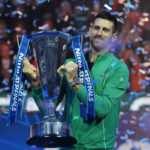
ATP Finals: Sinner beats Medvedev to knock Russian out of contention, Fritz through
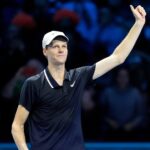
Fritz, after de Minaur win: “I kind of just let my results do the talking”
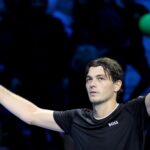
De Minaur “not satisfied” with flatlining, eyes improvement next season

Billie Jean King Cup Finals: Japan defeat Romania to set up Italy clash; first quarter-final since 2013
